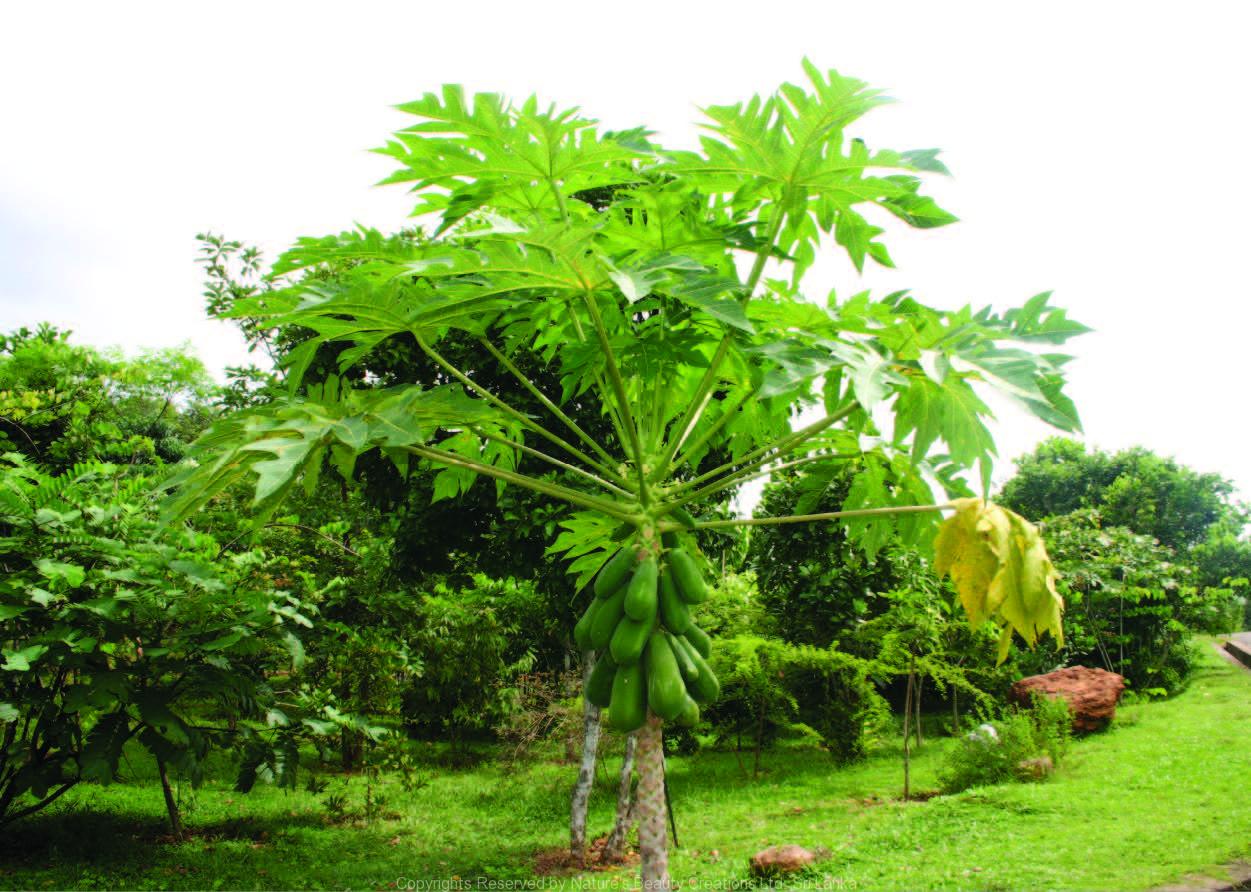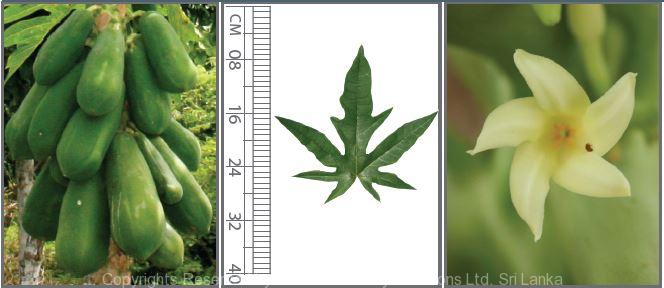

Traditional Knowledge
Useful plant parts :
Leaf, seed and fruit
Uses in traditional medicine :
- Leaves ground with lime juice are applied on mildly to moderately poisonous snake bites in Sri Lanka
- Leaf juice is taken to increase the number of platelets in the blood during high fever
- Ripe fruit is used as a cosmetic to remove freckles and is used as a soap
Scientific Research
Chemical constituents:
Benzyl-D-glucosides, isomeric malonated benzyl β-D-glucosides from fruits; protease enzymes: cysteine endopeptidases, papain, chymopapain, glycyl endopeptidase and caricain from latex
Bioactivity :
Organic extracts of seeds: spermicidal and contraceptive; methanol extract of leaves: potential for sickle cell disease therapy; latex: can used to treat pancreatic exocrine insufficiency; latex formulated in carbopol gel: effective in treating burns; extracts of seeds and fruits: antibacterial; fruit juice: antihypertensive
Clinical:
Note :
Fruits are edible
References : Abdelkafi, S. et al., (2009), In vitro comparisons between Carica papaya and pancreatic lipases during test meal lipolysis: Potential use of CPL in enzyme replacement therapy, Food Chemistry, 115(2), 488-494. Azarkan, M., et al., (2003), Fractionation and purification of the enzymes stored in the latex of Carica papaya, Journal of Chromatography B, 790(1-2), 229-238. Dawkins, G., et al., (2003), Antibacterial effects of Carica papaya fruit on common wound organisms, The West Indian Medical Journal, 52(4), 290-2. Eno, A. E. et al., (2000), Blood pressure depression by the fruit juice of Carica papaya (L.) in renal and DOCA-induced hypertension in the rat, Phytotherapy Research, 14(4), 235-239. Gurung, S. and Skalko-Basne, N., (2009), Wound healing properties of Carica papaya latex: In vivo evaluation in mice burn model, Journal of Ethnopharmacology, 121(2), 338-341. Imaga, N. O. A., et al., (2009), Antisickling property of Carica papaya leaf extract, African Journal of Biochemistry Research, 3(4), 102-106. Lohiya, N. K. et al., (2000), Human sperm immobilization effect of Carica papaya seed extracts: an in vitro study, Asian Journal of Androl- ogy, 2, 103-109. Lohiya, N. K. et al., (2005), Efficacy trial on the purified compounds of the seeds of Carica papaya for male contraception in albino rat, Reproductive Toxicology, 20(1), 135-148. Schwab, W. and Schreier, P., (1988), Aryl β-D-glucosides from Carica papaya fruit, Phytochemistry, 27(6), 1813-1816.
Copyrights Reserved By
Natures Beauty Creations



